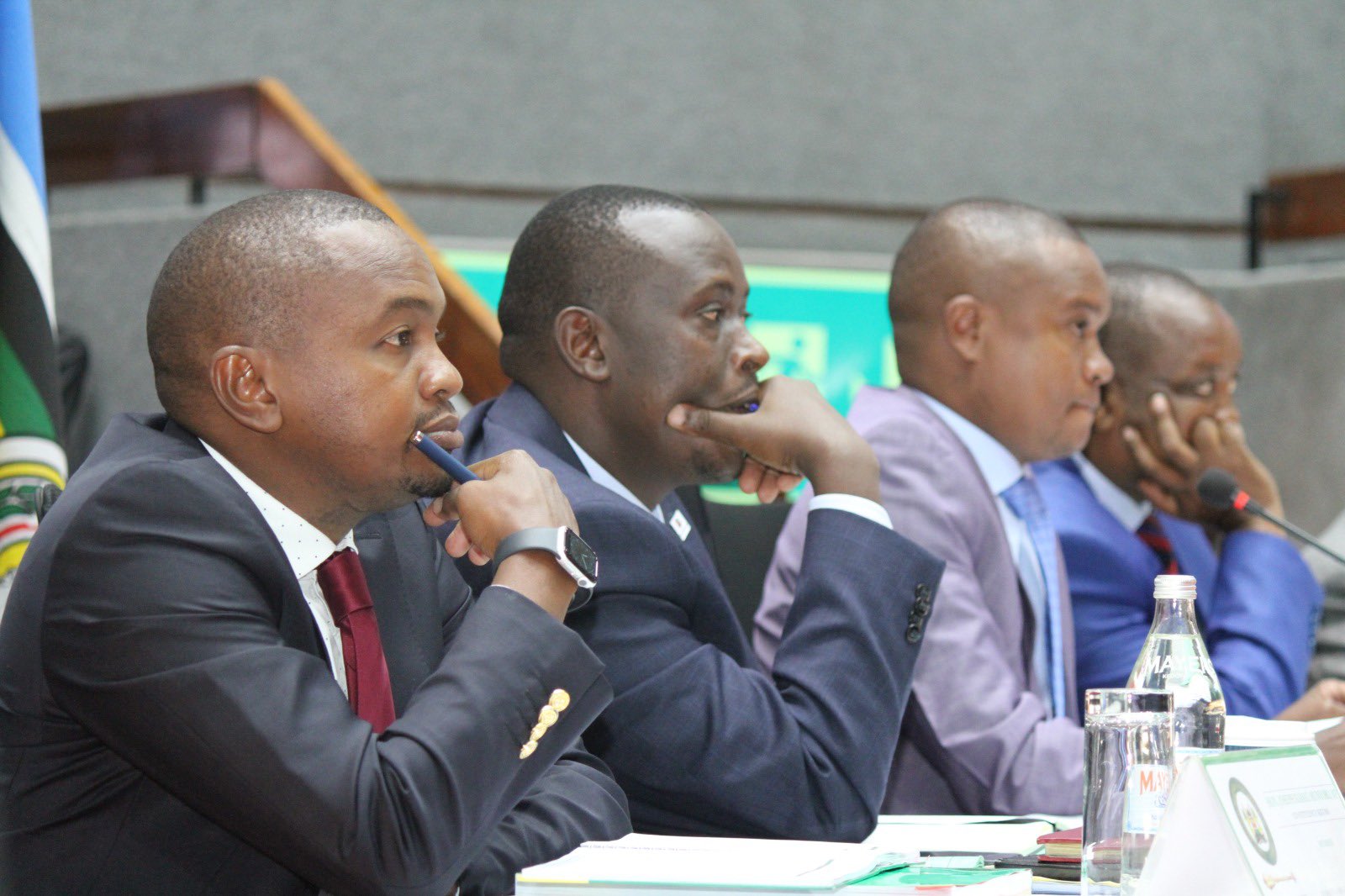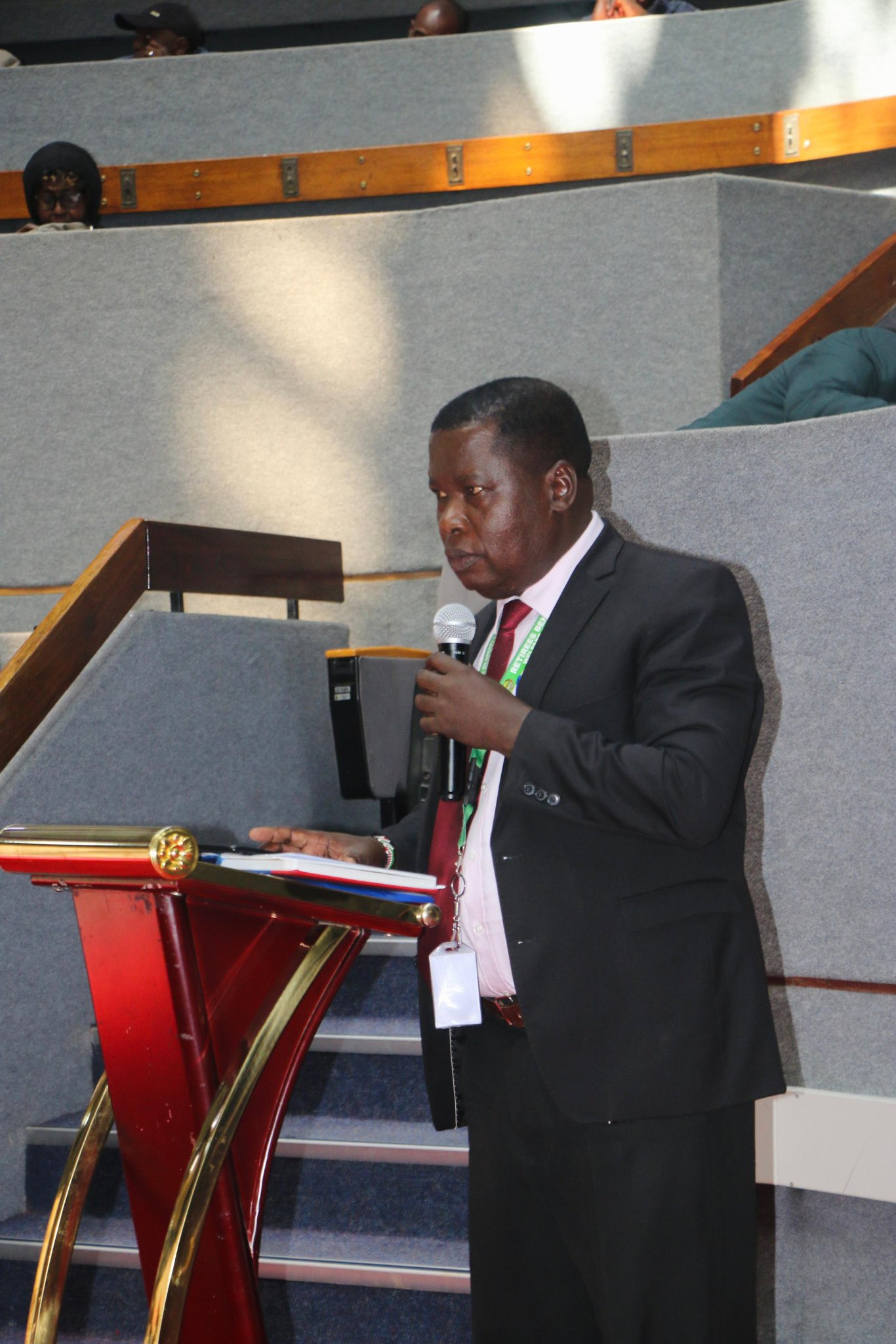PHOTOS: Kenyans give final submissions on controversial Finance Bill 2024 as hearings conclude

The Departmental Committee on Finance and National Planning conducted its final public hearing on the Finance Bill 2024 on Monday, June 10, 2024, with a range of stakeholders presenting their views on the proposed legislation.
The hearing, held at the Kenyatta International Convention Center (KICC), drew submissions from a variety of individuals and organizations, including representatives from business and industry, as well as advocacy groups.
One of the most notable submissions came from Benson Amburi, who represents the Retirees and Claims Association of Kenya.

Benson Amburi gives his submissions to the National Assembly’s Finance Committee at KICC on June 10, 2024. PHOTO/X (@NACommitteeKE)
Amburi called on the committee to prioritize expanding the tax base to capture more Kenyans who are currently not paying taxes.
This, he argued, would help to reduce the country’s reliance on a narrow group of taxpayers and promote greater economic equity.
In another notable submission, John Momanyi, representing Sigma Feeds, expressed support for a proposal to exclude fertilized eggs from East African Community Partner States that meet East African Community rules or origin.

John Momanyi gives his submissions to the National Assembly’s Finance Committee at KICC on June 10, 2024. PHOTO/X (@NACommitteeKE)
This measure, he argued, would help to promote regional trade and economic integration.
Meanwhile, Hellen Nafula, speaking in support of the provisions of Clause 42 (L&M) of the Finance Bill 2024, called for increased excise duty on both filtered and non-filtered cigarettes.
This, she argued, would help to combat the growing problem of non-communicable diseases such as cancer.

Hellen Nafula gives his submissions to the National Assembly’s Finance Committee at KICC on June 10, 2024. PHOTO/X (@NACommitteeKE)
The Finance Bill 2024 is designed to address a range of economic and fiscal challenges facing Kenya, including a widening budget deficit and a high level of debt.
The bill is expected to be debated and voted on by Parliament in the coming weeks.
The public hearing is the final stage in the public participation process, which was designed to give citizens and stakeholders an opportunity to comment on the proposed legislation.
The hearings started on May 15, 2024, and have already been undertaken in some 20 selected counties.
The committee will now review the submissions and recommendations made during the hearing before presenting its findings to the Parliament.
Parliament may be forced to review some of the proposals in the Finance Bill 2024 after lengthy stakeholder engagements carried out by the Finance and National Planning Committee revealed the devastating effects if the document is implemented as is.
Finance Bill 2024
Finance Bill 2024 has emerged as a hot-button issue with far-reaching implications for the country’s economy and citizens’ daily lives.
One of the most contentious proposals within the Bill is the imposition of taxes on personal vehicles, a measure that has drawn criticism from various quarters for its potential impact on the average Kenyan.
Additionally, the removal of tax exemptions on capital gains related to the transfer of title of immovable property to family trusts has raised eyebrows and sparked concerns about the Bill’s fairness and equity.
Critics have not minced words in their assessment of the Bill, with the opposition branding it as punitive. This characterization reflects widespread apprehension about the Bill’s potential to exacerbate the financial burden on ordinary citizens.
A key provision of the Bill seeks to reclassify the VAT status of ordinary bread, transitioning it from a zero-rated item to a taxable one at a rate of 16 per cent. This proposed change has raised concerns about its potential impact on consumer prices and the cost of living.
Furthermore, the bill proposes an increase in Excise Duty on financial services and money transfer services from 15 per cent to 20 per cent, a move that has drawn criticism for its potential to further strain the finances of Kenyan households.
Amidst the flurry of contentious proposals, Clause 39 of the bill has attracted significant attention for its proposal to repeal Section 14 of the Excise Duty Act, 2015.
This section currently provides relief on excise duty for raw materials used in the manufacture of excisable goods and for the purchase of bulk data by licensed internet data providers for resale.
The potential repeal of this section has raised concerns about its impact on various sectors of the economy.
In particular, manufacturers of edible oils in Kenya have sounded the alarm over the proposed 25 per cent excise duty on both raw and refined vegetable oils.
They warn that this measure could lead to a substantial increase in the price of edible oil by Ksh160 per litre, posing a significant challenge for consumers already grappling with economic pressures.
Related: 77% of Kenyans believe Finance Bill 2024 will have negative impact on economy – Infotrak
Author
Martin Oduor
The alchemist of literary works - a master wordsmith with a proven record of transforming the raw materials of language into a rich tapestry of emotion, thought, and imagination.
View all posts by Martin Oduor












